How much a new battery for a Toyota Prius costs is a common concern for Prius owners. At millertoyota.net, we understand the importance of keeping your hybrid running smoothly and affordably. We offer expert advice and services for Toyota Prius battery replacement, ensuring you get the best value and performance. For all your Toyota needs in Boise, including hybrid battery services, trust millertoyota.net. We provide top-notch service and genuine parts to keep your Toyota running like new.
1. Understanding the Toyota Prius Hybrid Battery
The hybrid battery is vital to your Toyota Prius. It manages the energy flow and ensures impressive fuel efficiency. A functional battery allows a seamless transition between electric and hybrid modes, making it more than just a feature—it’s a necessity. If you are facing battery issues, consider a visit to millertoyota.net for reliable service.
1.1. What Does the Hybrid Battery Do?
The hybrid battery in a Toyota Prius performs several crucial functions:
- Stores Energy: Captures and stores energy generated from regenerative braking and the gasoline engine.
- Powers Electric Motor: Provides power to the electric motor, assisting in acceleration and enabling electric-only driving at lower speeds.
- Improves Fuel Efficiency: By using electric power, it reduces the reliance on the gasoline engine, significantly improving fuel economy.
- Seamless Transition: Ensures a smooth transition between electric and hybrid modes for optimal performance.
1.2. Why Is a Functional Battery Necessary?
A functional hybrid battery is essential for several reasons:
- Optimal Performance: Guarantees the Prius operates at its peak performance, providing smooth acceleration and efficient energy use.
- Fuel Efficiency: Maintains the high fuel efficiency that Prius owners expect, saving money on gasoline.
- Environmental Benefits: Reduces emissions by using electric power, contributing to a cleaner environment.
- Reliable Operation: Ensures the car starts reliably and runs smoothly in various driving conditions.
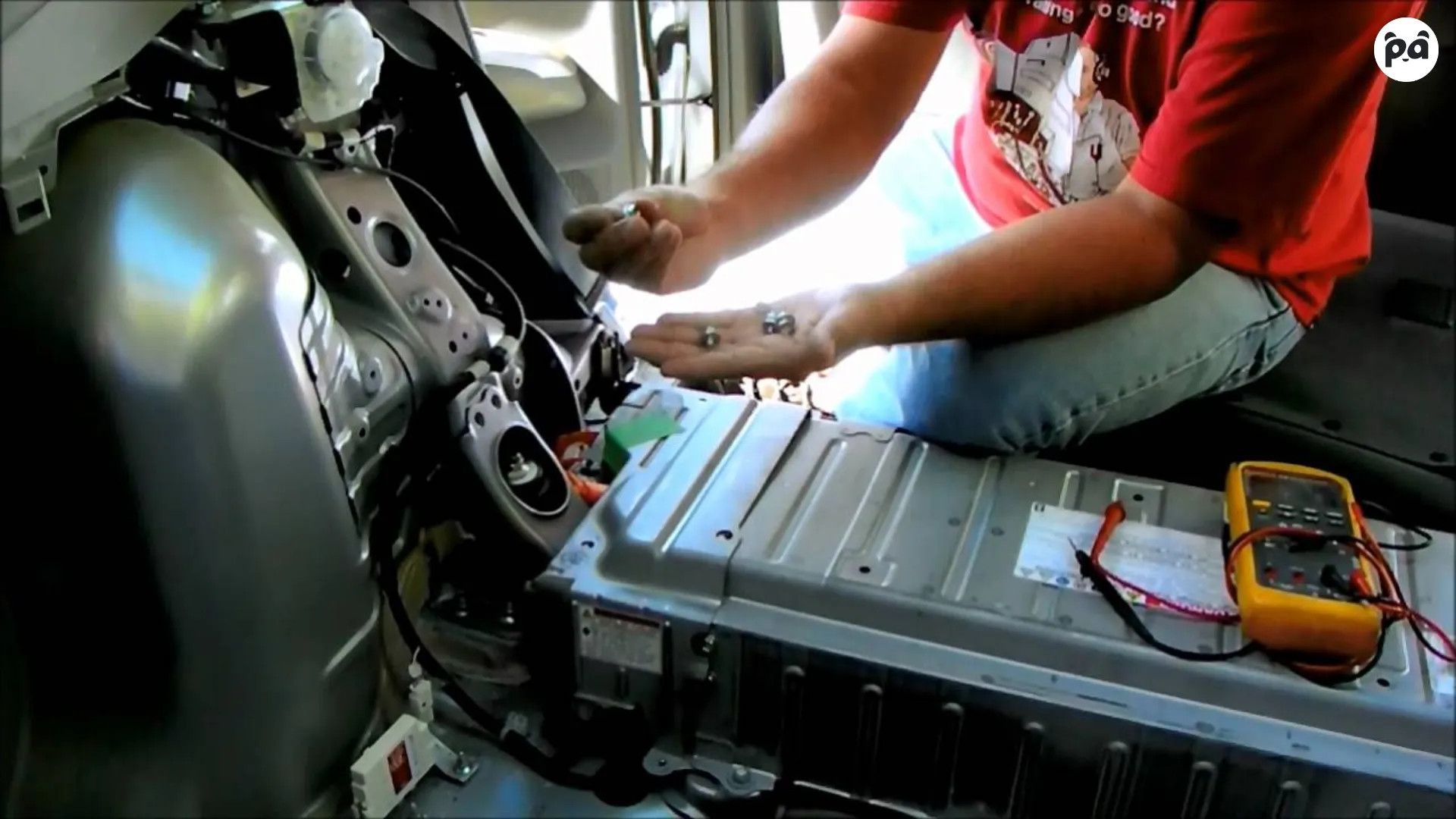 Toyota Prius Hybrid Battery Function
Toyota Prius Hybrid Battery Function
2. Breaking Down the Costs of a New Prius Battery
The cost of replacing a Toyota Prius battery can vary. A new battery from Toyota can range from $2,300 to $2,600, depending on the model year and hybrid system. This includes the battery and the installation process, tailored to your Prius model. Explore options at millertoyota.net for detailed pricing.
2.1. The Upfront Expense of a New Battery
When considering a new battery for your Toyota Prius, it’s important to understand the initial expenses involved:
- Battery Cost: The cost of a new, Toyota-sourced battery typically ranges from $2,300 to $2,600.
- Model Year Variation: Prices can vary slightly depending on the specific model year of your Prius due to differences in battery specifications.
- Hybrid System Type: The type of hybrid system in your Prius can also influence the cost, as different systems may require different battery models.
- Installation Costs: This includes the labor and any additional parts required for the installation process.
2.2. Refurbished Batteries: A Second Wind for Less
Refurbished batteries offer a cost-effective alternative, ranging from $1,500 to $1,800. These recycled batteries are tested and come with a warranty, offering a budget-friendly option. Consider this option at millertoyota.net for a balance of cost and reliability.
- Cost Savings: Refurbished batteries are significantly cheaper than new ones, providing substantial savings.
- Recycling Efforts: Choosing a refurbished battery supports recycling initiatives and reduces environmental impact.
- Warranty Coverage: Reputable suppliers offer warranties on refurbished batteries, similar to those on new batteries, ensuring peace of mind.
- Performance Reliability: Refurbished batteries undergo rigorous testing to ensure they meet performance standards.
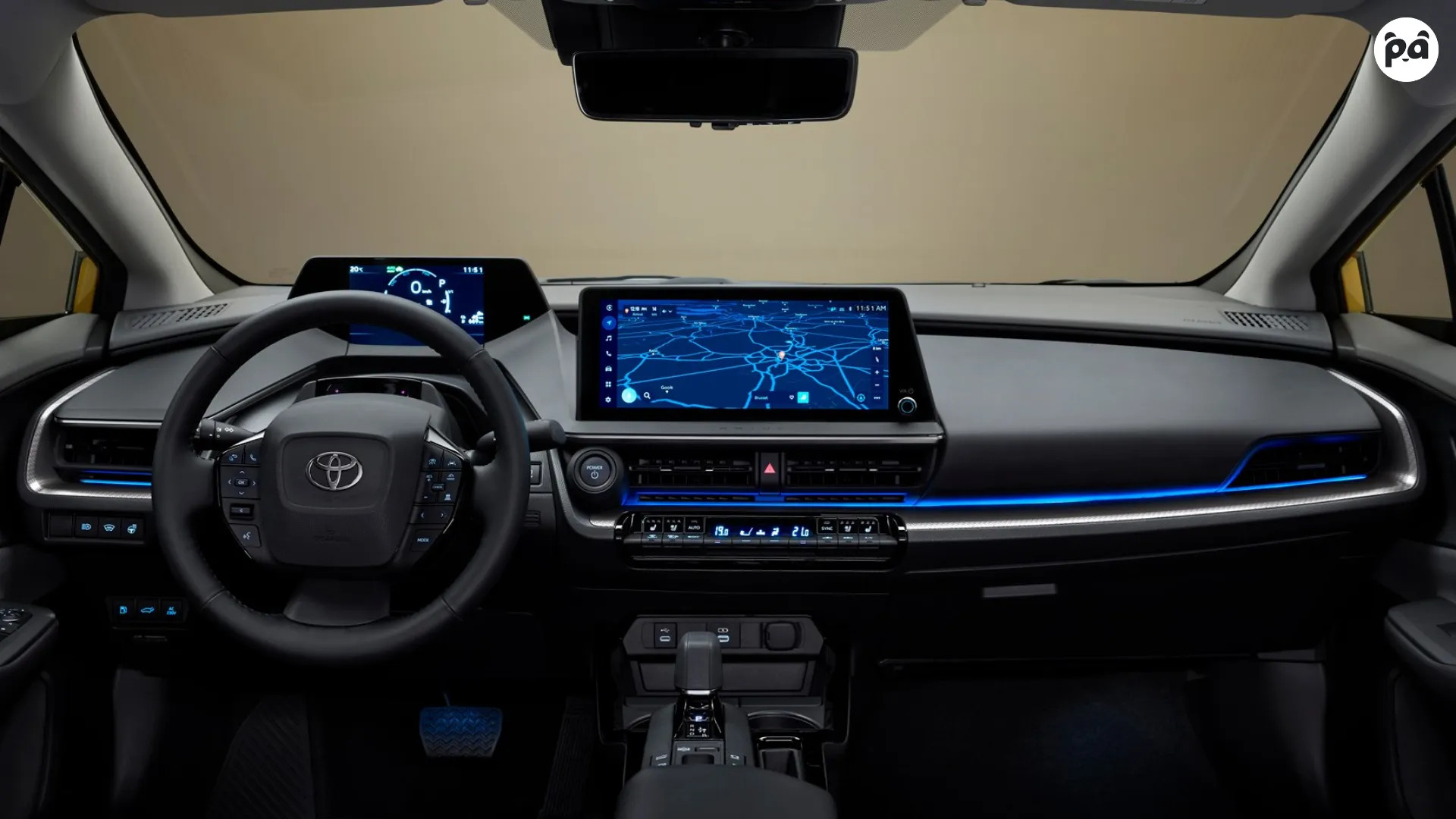 Cost Comparison of New vs Refurbished Prius Batteries
Cost Comparison of New vs Refurbished Prius Batteries
3. Factors Influencing Prius Battery Replacement Costs
Several factors influence the final cost of replacing a Prius battery, including the choice between new and refurbished batteries, labor costs, and warranty coverage. Being aware of these elements can help you make an informed decision and potentially save money.
3.1. New vs. Refurbished: Cost Comparison
Choosing between a new and refurbished battery is a key factor in determining the overall cost:
- Long-Term Peace of Mind: New batteries offer the assurance of longevity and reliability, reducing the likelihood of future replacements.
- Immediate Discount: Refurbished batteries provide an immediate cost reduction, making them an attractive option for budget-conscious owners.
- Warranty Differences: New batteries typically come with longer warranties, while refurbished batteries may have shorter warranty periods.
Table: Cost Comparison of New vs. Refurbished Batteries
| Feature | New Battery | Refurbished Battery |
|---|---|---|
| Cost | $2,300 – $2,600 | $1,500 – $1,800 |
| Warranty | Longer | Shorter |
| Reliability | Higher | Moderate |
| Environmental Impact | Higher | Lower |
3.2. Labor Costs: What to Expect
Labor costs can significantly impact the overall expense of battery replacement:
- Varied Estimates: Labor costs can range from $500 to over $1,000, depending on the service provider’s experience and operational costs.
- Specialized Expertise: Hybrid repair shops often charge more for labor but may have more expertise in handling hybrid systems.
- Location Matters: Labor rates can vary based on geographic location, with urban areas typically having higher rates.
3.3. Warranty and Insurance: How They Affect Costs
Warranty and insurance coverage can play a crucial role in reducing out-of-pocket expenses:
- Extended Warranties: Check if your vehicle’s extended warranty covers battery replacements.
- Supplemental Policies: Investigate if supplemental insurance policies can provide financial protection against battery failure.
- Coverage Details: Understand the terms and conditions of your warranty or insurance policy to know what is covered and what is not.
Table: Impact of Warranty and Insurance on Battery Replacement Costs
| Policy Type | Coverage | Cost Impact |
|---|---|---|
| Extended Warranty | Covers battery replacement, parts, and labor | Reduces or eliminates out-of-pocket costs |
| Insurance Policy | Covers battery failure under certain conditions | Reduces or eliminates out-of-pocket costs |
| No Coverage | No financial assistance | Full cost borne by the owner |
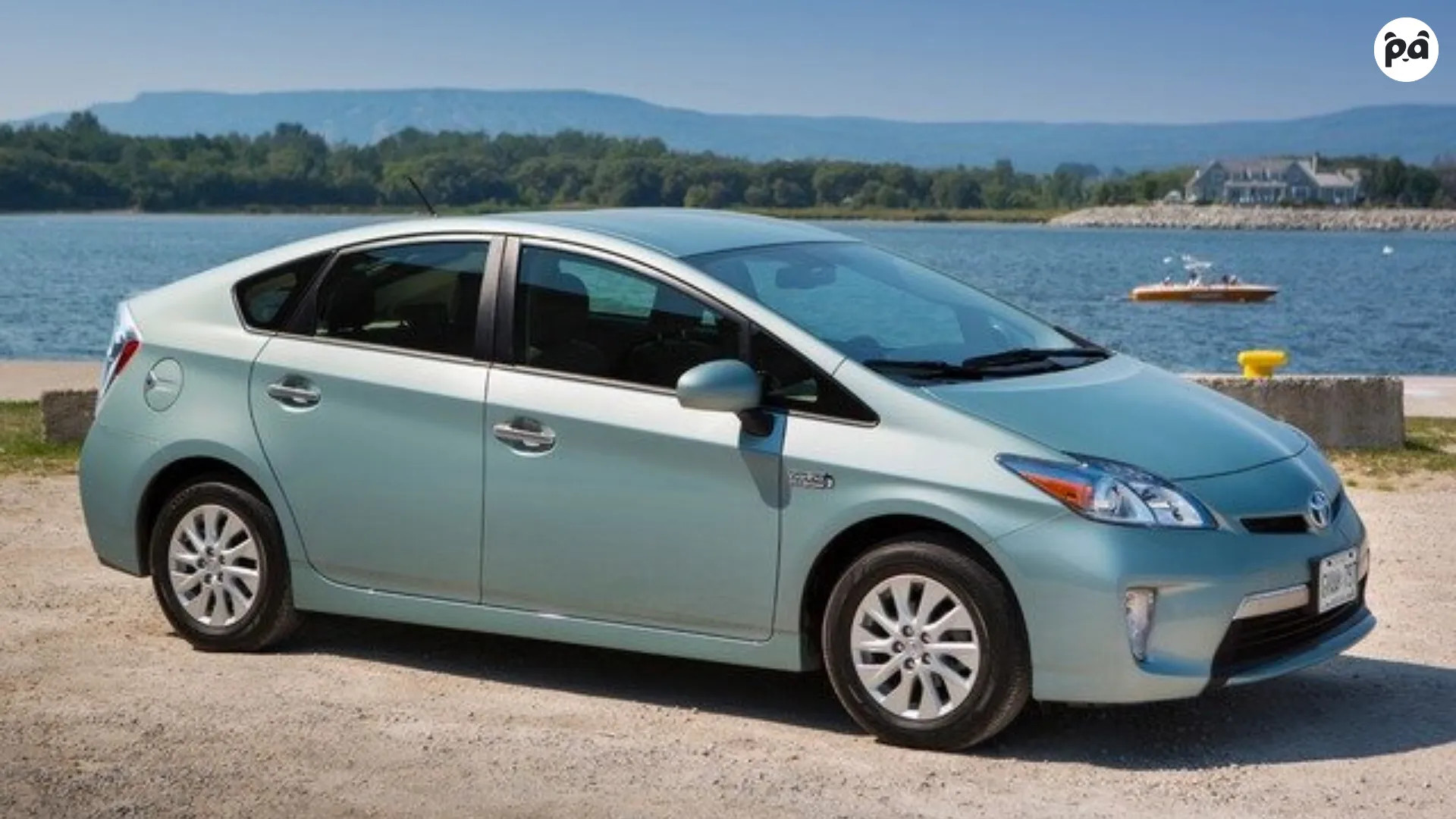 Factors Influencing Battery Replacement Costs for Toyota Prius
Factors Influencing Battery Replacement Costs for Toyota Prius
4. Recognizing Signs Your Prius Battery Needs Replacement
Knowing when your Prius battery needs replacement can prevent more costly repairs. Key indicators include reduced fuel efficiency, warning lights, sluggish performance, and difficulty starting. Addressing these issues promptly can save you money and ensure your Prius runs smoothly.
4.1. Decreasing Miles-Per-Gallon Ratio
A noticeable drop in your Prius’s fuel efficiency is often one of the first signs of a weakening battery:
- Monitor Fuel Consumption: Keep track of your MPG and note any significant decreases.
- Driving Habits: Ensure your driving habits have not changed, as aggressive driving can also reduce fuel efficiency.
- Compare to Baseline: Compare your current MPG to the original MPG when the car was new to gauge battery health.
4.2. Warning Lights: The Infamous Triangle
The appearance of warning lights, especially the triangle warning light, is a clear indicator of a potential battery issue:
- Triangle Warning Light: This light typically indicates a problem within the hybrid system, including the battery.
- Check Engine Light: The check engine light can also signal battery-related issues, though it can indicate other problems as well.
- Diagnostic Scan: Have your Prius scanned by a professional to determine the exact cause of the warning lights.
4.3. Sluggish Performance
A decline in your Prius’s acceleration and overall performance can be a sign of a failing battery:
- Reduced Acceleration: Notice if your Prius takes longer to accelerate or struggles to maintain speed.
- Hesitation: Look for any hesitation or jerking during acceleration, which can indicate battery problems.
- Power Loss: Be aware of any noticeable loss of power, especially when climbing hills or accelerating quickly.
4.4. Difficulty Starting
If your Prius struggles to start or frequently relies on the gasoline engine, it may be time for a battery replacement:
- Frequent Engine Use: If the gasoline engine runs more often than usual, it could be due to the battery’s inability to provide sufficient power.
- Starting Issues: Difficulty starting the car, especially in colder weather, can indicate a weak battery.
- Electric Mode Issues: If the car rarely or never enters electric mode, the battery may be failing.
5. DIY vs. Professional Replacement for Your Prius Battery
Deciding between DIY and professional battery replacement involves considering your skills, tools, and safety. While DIY can save money, professional replacement ensures safety and expertise. For complex tasks like battery replacement, it’s best to consult professionals at millertoyota.net.
5.1. The Risks of DIY Battery Replacement
Attempting a DIY battery replacement can pose several risks:
- Electrical Hazards: Hybrid batteries operate at high voltages, posing a significant risk of electric shock.
- Complex Procedures: The replacement process involves intricate steps and requires specialized tools.
- Warranty Voidance: DIY repairs can void the battery’s warranty, leaving you responsible for future issues.
5.2. Benefits of Professional Replacement
Choosing professional battery replacement offers several advantages:
- Expertise and Experience: Certified technicians have the knowledge and skills to safely and effectively replace the battery.
- Proper Equipment: Professionals use specialized tools and equipment to ensure the job is done correctly.
- Warranty Protection: Professional installation typically includes warranty coverage, providing peace of mind.
6. Longevity of Prius Batteries: When Should You Replace?
Prius batteries typically last between 100,000 to 150,000 miles, depending on driving conditions and maintenance. Regular maintenance and timely replacements can extend battery life. Early replacements may indicate other issues in the hybrid system.
6.1. Factors Affecting Battery Lifespan
Several factors can impact how long your Prius battery lasts:
- Driving Conditions: Frequent stop-and-go traffic, extreme temperatures, and mountainous terrain can shorten battery life.
- Maintenance Habits: Regular maintenance, such as software updates and hybrid system checks, can extend battery life.
- Battery Usage: Frequent deep discharges and overcharging can degrade battery health over time.
6.2. Signs of End-of-Life
As a Prius battery approaches the end of its lifespan, certain symptoms may become more noticeable:
- Reduced Range: The car’s ability to drive in electric-only mode may diminish significantly.
- Frequent Recharging: The battery may require more frequent recharging to maintain performance.
- Increased Engine Reliance: The gasoline engine may run more often, even at low speeds.
7. Consequences of Delaying Battery Replacement
Delaying battery replacement can lead to further issues and costly repairs. Promptly addressing battery problems saves money and maintains your Prius’s resale value. Neglecting replacement can also lead to safety issues and decreased performance.
7.1. Potential Damage to Hybrid System
A failing battery can strain other components of the hybrid system, potentially leading to:
- Increased Load on Engine: The gasoline engine may work harder to compensate for the battery’s reduced output.
- Strain on Inverter: The inverter, which converts DC power from the battery to AC power for the motor, may be overworked.
- Reduced Efficiency: The overall efficiency of the hybrid system can decrease, leading to higher fuel consumption.
7.2. Safety Concerns
A deteriorating battery can pose safety risks:
- Unreliable Performance: The car may exhibit unpredictable behavior, such as sudden power loss.
- Electrical Issues: A failing battery can cause electrical malfunctions, potentially leading to fires.
- Stranded Situations: The car may break down unexpectedly, leaving you stranded.
7.3. Financial Implications
Delaying battery replacement can result in:
- Higher Repair Costs: Addressing battery issues early can prevent more extensive and expensive repairs down the road.
- Reduced Resale Value: A well-maintained Prius with a healthy battery will command a higher resale value.
- Increased Fuel Costs: A failing battery can reduce fuel efficiency, leading to increased gasoline expenses.
8. Extending the Life of Your Prius Battery
Proactive battery health management can extend its life. Regular maintenance, avoiding extreme temperatures, and consistent driving contribute to a healthier, more durable battery. Follow these tips to maximize your battery’s lifespan.
8.1. Regular Maintenance
Consistent maintenance is essential for maximizing battery life:
- Hybrid System Checks: Schedule regular checks of the hybrid system to identify and address potential issues early.
- Software Updates: Ensure the car’s software is up to date, as updates often include improvements to battery management.
- Battery Health Monitoring: Use diagnostic tools to monitor the battery’s health and identify any signs of degradation.
8.2. Avoiding Extreme Temperatures
Extreme heat and cold can negatively impact battery performance and lifespan:
- Park in Shade: When possible, park your Prius in shaded areas to avoid excessive heat exposure.
- Use Climate Control: Utilize the car’s climate control system to maintain a moderate temperature in the battery compartment.
- Avoid Extreme Cold: In cold climates, park the car in a garage to protect the battery from freezing temperatures.
8.3. Consistent Driving Habits
Regular driving can help maintain battery health:
- Avoid Prolonged Idling: Extended periods of idling can drain the battery and reduce its lifespan.
- Moderate Driving: Avoid aggressive driving, such as rapid acceleration and hard braking, which can stress the battery.
- Regular Use: Use the car regularly to keep the battery active and prevent it from sitting idle for extended periods.
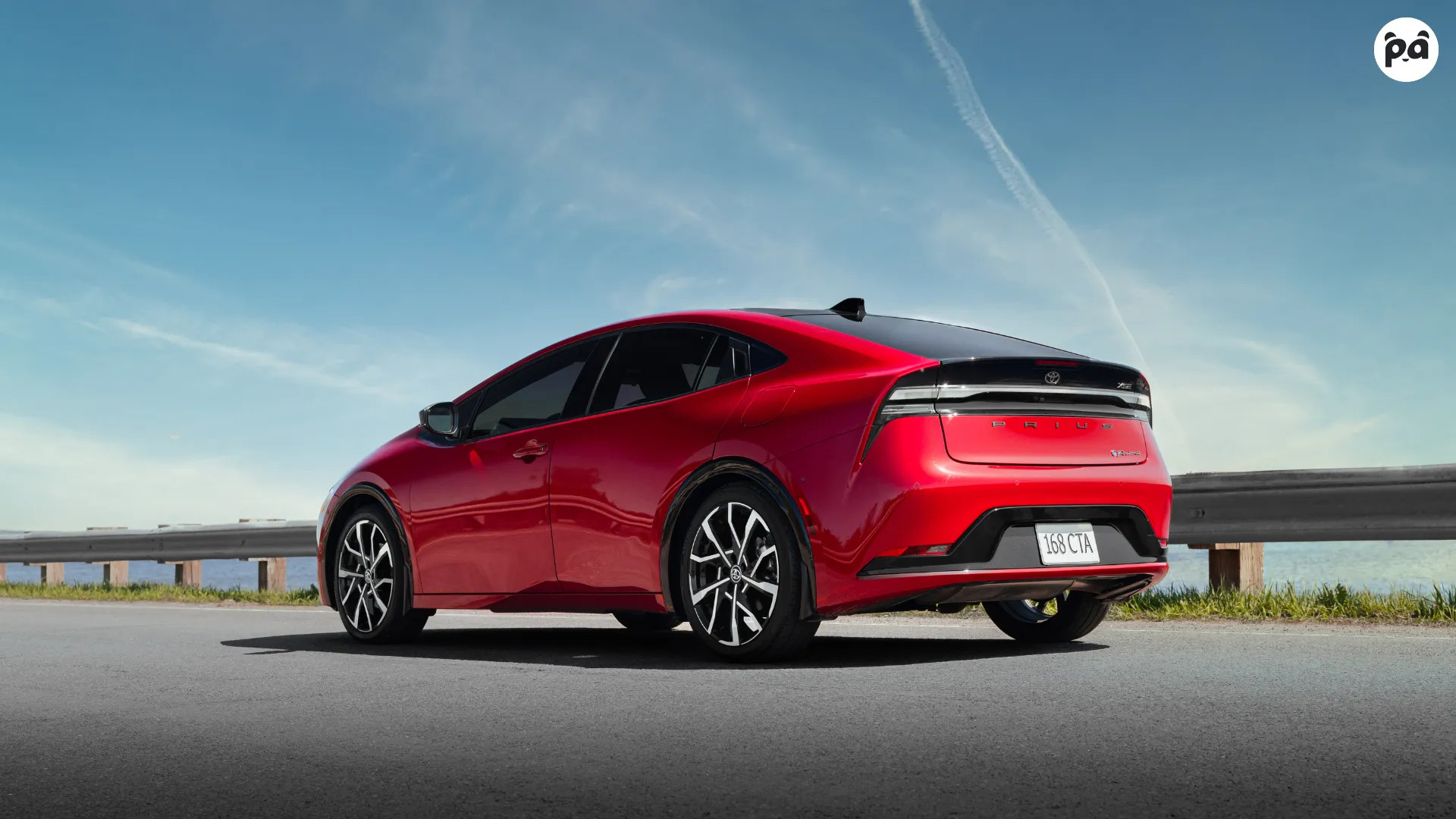 Tips for Extending Prius Battery Life
Tips for Extending Prius Battery Life
9. Choosing the Right Place for Battery Replacement
Selecting the right service provider is crucial for battery replacement. OEM Toyota dealerships offer genuine parts but may be pricier. Independent specialists offer competitive pricing but vary in expertise. Consider factors like warranty, expertise, and customer reviews.
9.1. OEM Toyota Dealerships
OEM Toyota dealerships provide:
- Genuine Parts: Use of genuine Toyota parts ensures compatibility and reliability.
- Certified Technicians: Trained technicians with expertise in Toyota hybrid systems.
- Warranty Coverage: Comprehensive warranty coverage on parts and labor.
9.2. Independent Hybrid Specialists
Independent specialists offer:
- Competitive Pricing: Often provide more affordable options compared to dealerships.
- Specialized Knowledge: Expertise in hybrid systems, ensuring proper diagnosis and repair.
- Personalized Service: Can offer more personalized attention and tailored solutions.
9.3. General Car Mechanics
General car mechanics may offer:
- Lower Labor Costs: Typically have lower labor rates compared to dealerships and specialists.
- Convenience: Can provide a one-stop solution for various car maintenance needs.
- Varied Expertise: Expertise in hybrid systems may vary, so it’s important to verify their qualifications.
10. Cost-Saving Tips for Prius Battery Replacement
Savvy Prius owners can reduce battery replacement costs. Time your replacement during slower periods, seek discount coupons, and carefully evaluate battery options. Planning and research can lead to significant savings.
10.1. Timing Your Replacement
Consider the timing of your battery replacement:
- Slower Business Periods: Schedule the replacement during off-peak seasons when service centers may offer discounts.
- Promotional Periods: Look for special promotions or discounts offered by dealerships and repair shops.
- End-of-Year Sales: Take advantage of end-of-year sales events, where you might find deals on parts and labor.
10.2. Seeking Out Discount Coupons
Look for coupons and discounts:
- Online Coupons: Search online for coupons and promotional codes from dealerships and independent repair shops.
- Membership Discounts: Check if you are eligible for discounts through membership programs like AAA.
- Local Advertisements: Keep an eye on local advertisements and mailers for special offers.
10.3. Carefully Considering Battery Options
Evaluate all available battery options:
- New vs. Refurbished: Weigh the pros and cons of new and refurbished batteries to determine the best option for your budget and needs.
- Aftermarket Options: Research aftermarket batteries, but proceed with caution and ensure they meet quality standards.
- Warranty Comparison: Compare warranty terms for different battery options to ensure adequate coverage.
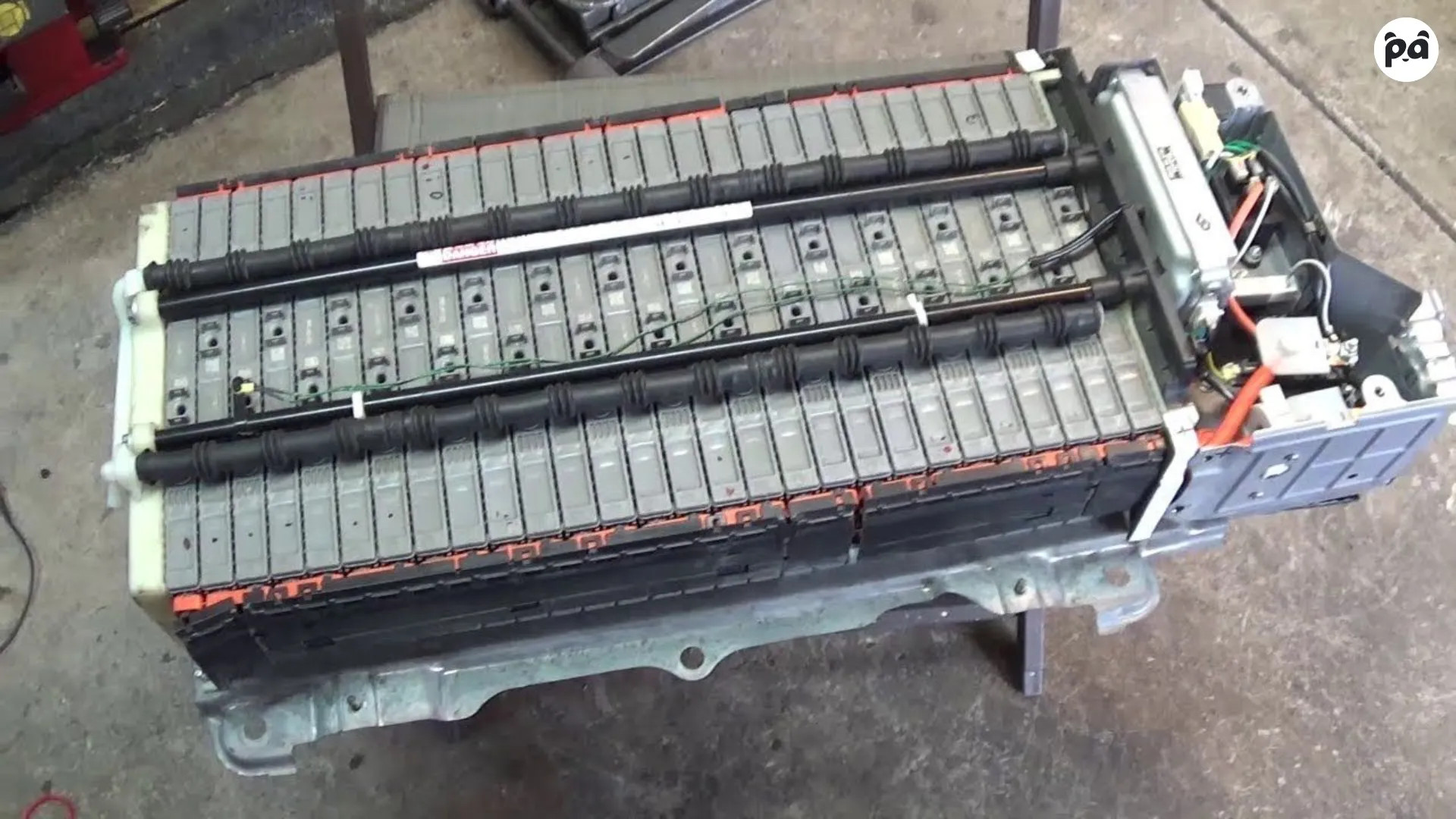 Cost-Saving Tips for Prius Battery Replacement
Cost-Saving Tips for Prius Battery Replacement
Conclusion: Navigating Your Prius Battery Replacement
Replacing your Prius battery is a significant investment, ensuring your vehicle’s longevity. Understanding costs and considerations helps you make the best decision. Trust millertoyota.net for expert advice and services in Boise, Idaho.
Your Prius’ hybrid battery is a financial investment, and securing a replacement ensures the longevity of your vehicle. By understanding the costs and considerations involved, you position yourself as an informed consumer ready to make the best decision for your Prius and your wallet.
Visit millertoyota.net today to explore our wide selection of Toyota vehicles and service options. Contact us at +1 (208) 376-8888 or visit our location at 208 N Maple Grove Rd, Boise, ID 83704, United States.
FAQ: Common Questions About Prius Battery Replacement
Q1: Will replacing my Prius battery improve its fuel efficiency?
Yes, replacing an old or failing Prius battery will likely improve fuel efficiency. A new battery allows the hybrid system to function optimally, reducing reliance on the gasoline engine and maximizing electric power usage, which leads to better MPG.
Q2: How can I tell if my Prius battery is refurbished?
A refurbished Prius battery should come with documentation or labels from the remanufacturer indicating its status. Look for markings that specify it is a recycled or remanufactured unit, along with warranty information and testing certifications. Reputable suppliers will be transparent about the battery’s history.
Q3: Are there any aftermarket Prius batteries, and are they worth it?
Yes, aftermarket Prius batteries exist, but they should be approached with caution. While often less expensive, they may not meet the same quality standards as OEM or refurbished batteries. Research aftermarket options thoroughly, check reviews, and ensure they come with a solid warranty before purchasing.
Q4: What is the typical lifespan of a Toyota Prius battery?
Toyota Prius batteries typically last between 100,000 to 150,000 miles, or approximately 8 to 10 years, depending on driving conditions, maintenance habits, and environmental factors.
Q5: Can extreme temperatures affect the performance of my Prius battery?
Yes, extreme temperatures can affect the performance and lifespan of your Prius battery. High heat can accelerate battery degradation, while extreme cold can reduce its efficiency and power output.
Q6: What are the key indicators that my Prius battery needs to be replaced?
Key indicators include a decrease in fuel efficiency, the appearance of warning lights (such as the triangle warning light or check engine light), sluggish performance, and difficulty starting.
Q7: Is it safe to drive my Prius with a failing battery?
Driving with a failing battery can be risky. It can lead to unpredictable performance, reduced fuel efficiency, and potential damage to other components of the hybrid system. It is best to address battery issues promptly.
Q8: Can I replace the battery myself, or should I take it to a professional?
While DIY replacement is possible, it is not recommended unless you have experience with hybrid systems and electrical work. Hybrid batteries operate at high voltages, posing a significant risk of electric shock. Professional replacement ensures safety and proper installation.
Q9: How much does labor typically cost for Prius battery replacement?
Labor costs for Prius battery replacement can range from $500 to over $1,000, depending on the service provider’s experience, operational costs, and location.
Q10: Does replacing the battery void my car’s warranty?
Replacing the battery with a non-OEM part or performing a DIY replacement can potentially void certain parts of your car’s warranty. Consult your warranty documentation and consider using OEM parts and certified technicians to maintain warranty coverage.
Call to action:
Visit millertoyota.net today to explore our wide selection of Toyota vehicles and service options. Contact us at +1 (208) 376-8888 or visit our location at 208 N Maple Grove Rd, Boise, ID 83704, United States.